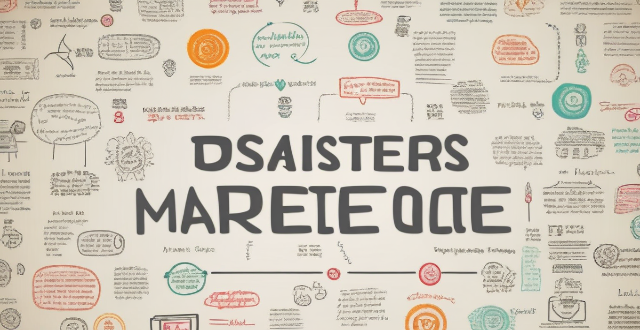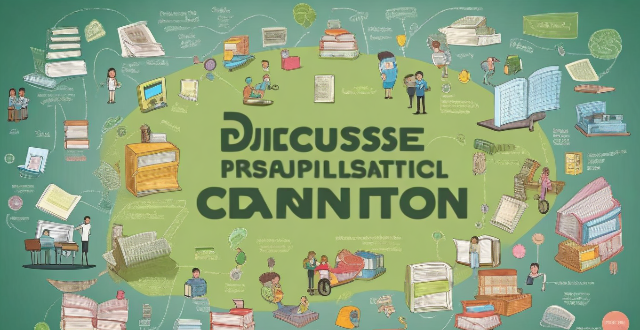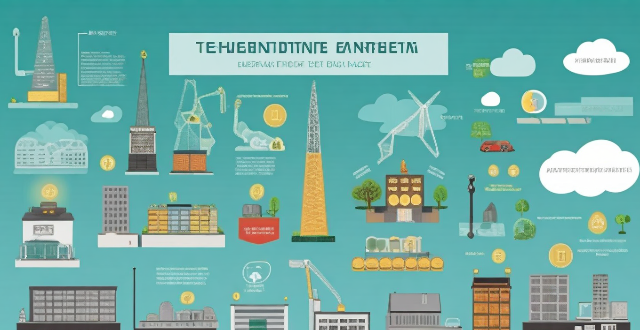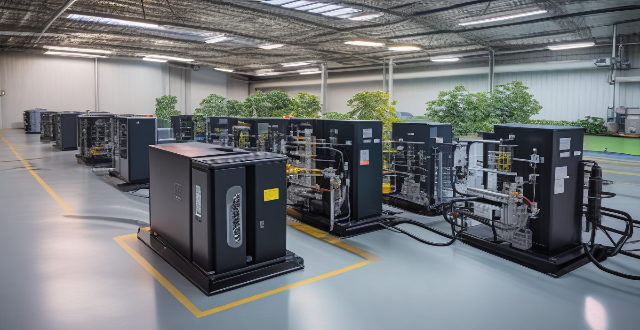Term Traditional

How does climate leadership differ from traditional forms of leadership ?
Climate leadership is a specialized form of leadership that focuses on addressing the challenges and complexities associated with climate change. It differs from traditional forms of leadership in several key ways, including its scope, urgency, collaborative nature, and long-term perspective. Climate leadership addresses global issues that affect the entire planet and all its inhabitants, while traditional leadership often focuses on organizational goals, profits, or specific projects. Climate leadership operates with a sense of urgency due to the accelerating pace of climate change, while traditional leadership may operate on a more relaxed timeline. Climate leadership emphasizes horizontal integration and networked governance structures, engaging with external stakeholders such as governments, NGOs, and international bodies. In contrast, traditional leadership typically operates within a hierarchical structure where decision-making is centralized. Climate leadership considers the long-term implications of decisions for future generations and prioritizes sustainable practices that balance economic growth with environmental stewardship. Traditional leadership tends to focus on quarterly results or annual performance targets and may prioritize short-term gains over long-term sustainability. Climate leadership encourages innovation and experimentation to find new solutions to complex problems and fosters a learning environment where failure is seen as an opportunity for growth. Traditional leadership may rely on established methods and processes and can be resistant to change if it disrupts current operations. Finally, climate leadership places ethical considerations at the forefront, acknowledging the moral imperative to act and recognizing the interconnectedness of environmental health with social equity and justice. In contrast, traditional leadership is often centered on legal compliance and shareholder value, with ethics being secondary to profitability and efficiency. In summary, climate leadership demands a broader vision, greater urgency, extensive collaboration, a long-term outlook, continual innovation, and a strong ethical foundation. It requires leaders who are not only skilled in their respective fields but also possess a deep understanding of environmental issues and the ability to inspire collective action towards a more sustainable future.

How does ESG investing differ from traditional investing ?
ESG investing, also known as sustainable or responsible investing, is a strategy that involves considering a company's environmental, social, and governance (ESG) factors in addition to traditional financial analysis. This approach aims to create long-term value while promoting positive societal change. On the other hand, traditional investing primarily focuses on financial performance and maximizing returns for investors. In this answer, we will explore the key differences between ESG investing and traditional investing.

Can influencer marketing replace traditional advertising ?
The text discusses whether influencer marketing can replace traditional advertising. It lists the advantages of influencer marketing as authenticity, targeted audience, and cost-effectiveness but also mentions its disadvantages such as lack of control, short-term impact, and a saturated market. Traditional advertising, on the other hand, has the advantage of wide reach, control over messaging, and long-term impact, but its disadvantages include high costs, declining engagement, and limited targeting. The text concludes that both strategies should be used together for maximum effectiveness.

Are green bonds a profitable investment compared to traditional bonds ?
Green bonds are a type of fixed-income security designed to finance environmentally friendly projects. While their risk and return profile can be similar to traditional bonds, green bonds offer potential diversification benefits, alignment with sustainability goals, and possibly tax benefits. However, their long-term performance relative to traditional bonds depends on various factors such as interest rate changes and market sentiment. Green bonds often come with more rigorous reporting requirements to ensure the proceeds are used for environmentally friendly projects. Whether green bonds are more profitable than traditional bonds cannot be definitively answered without considering individual investment goals and market conditions.

Are hub motors more efficient than traditional motors ?
Hub motors are generally more efficient than traditional motors due to their direct drive design and lightweight construction. However, traditional motors may still be suitable for certain applications where weight and cooling requirements are not major concerns.

How do bootcamps compare to traditional computer science degrees in terms of learning programming ?
Bootcamps and traditional computer science degrees are two popular ways to learn programming. While both have their advantages and disadvantages, they differ in several key aspects: 1. **Learning Duration**: Bootcamps last a few weeks or months, while traditional degrees take four years for a bachelor's degree and up to two additional years for a master's degree. 2. **Curriculum and Coursework**: Bootcamps focus on practical, project-based learning of specific programming languages and tools, while traditional degrees offer a broader range of courses covering various topics such as algorithms, data structures, operating systems, and computer architecture. 3. **Cost and Financial Considerations**: Bootcamps are generally less expensive than traditional degrees, with tuition fees ranging from a few thousand to tens of thousands of dollars, while traditional degrees can be significantly more expensive. 4. **Career Opportunities and Outcomes**: Bootcamps prepare students for entry-level programming jobs quickly, while traditional degrees open up a wider range of career opportunities, including roles in research, academia, and management. The choice between a bootcamp and a traditional degree depends on individual goals, preferences, and circumstances.

What is the relationship between ecological protection areas and traditional knowledge and practices ?
Ecological protection areas and traditional knowledge and practices are interconnected, with the latter serving as a vital resource for conservation efforts. These areas often contain valuable traditional knowledge developed by indigenous communities, which can aid in their effective management. Traditional knowledge encompasses agricultural practices, medicinal plants, sustainable hunting and fishing techniques, and land management methods. Ecological protection areas aim to preserve biodiversity and ecosystem services through legal means like national parks and nature reserves. The intersection of these two realms offers benefits for both conservation and cultural preservation, encourages community engagement, and creates economic opportunities through ecotourism. Integrating traditional knowledge into conservation strategies can lead to more effective and culturally sensitive management of ecological protection areas while preserving the cultural heritage of indigenous peoples.

What is the significance of setting short-term versus long-term climate targets ?
The article emphasizes the importance of setting both short-term and long-term climate targets to effectively address climate change. Short-term targets focus on immediate actions, creating urgency, measurable progress, immediate benefits, and building momentum for more ambitious goals. Long-term targets ensure sustainability, deep decarbonization, adaptation, and global cooperation. Achieving these goals is crucial for mitigating the worst effects of climate change and creating a more resilient future.

What are some traditional South American festivals that I shouldn't miss ?
South America is a continent rich in culture, traditions, and festivals. Some of the most popular traditional South American festivals include Carnival in Rio de Janeiro, Day of the Dead in Mexico, and Inti Raymi in Cusco, Peru. These festivals feature colorful parades, live music performances, traditional dances, and more. They are a chance for people to connect with their cultural roots and celebrate their heritage.

How does blockchain differ from traditional databases ?
Blockchain technology and traditional databases are two different systems for storing and managing data. While they share some similarities, there are several key differences between the two. In this article, we will explore these differences in detail. One of the most significant differences between blockchain and traditional databases is the level of decentralization. Traditional databases are typically centralized, meaning that they are managed by a single entity or organization. On the other hand, blockchain is a decentralized system where data is stored across multiple nodes in a network. Another key difference between blockchain and traditional databases is immutability. Once data is added to a block in a blockchain, it cannot be changed or deleted. This is in contrast to traditional databases, where data can be modified or deleted by authorized users. Blockchain uses a consensus mechanism to validate transactions and add new blocks to the chain. This is different from traditional databases, which rely on a central authority to validate transactions and make changes to the database. Blockchain technology also supports smart contracts, which are self-executing contracts with the terms of the agreement between buyer and seller being directly written into lines of code. Traditional databases do not support this feature. In conclusion, while blockchain and traditional databases share some similarities, there are several key differences between the two systems. Blockchain's decentralization, immutability, consensus mechanism, and support for smart contracts make it a unique and powerful tool for managing data in various industries.

Is there a difference between short-term and long-term memory in scientific terms ?
Short-term memory and long-term memory are two different types of memory with distinct characteristics. Short-term memory has a limited capacity, typically able to hold around seven items for a brief period, while long-term memory has a large capacity, virtually unlimited, and can store vast amounts of information for an extended period. Short-term memory lasts only for a few seconds unless it is repeatedly rehearsed or transferred to long-term memory, while long-term memory can last for minutes, hours, days, years, or even a lifetime. Short-term memory acts as a temporary holding place for new information, processing it before transferring it to long-term memory, while long-term memory stores information for future use, including facts, experiences, skills, and knowledge. Short-term memory has a faster retrieval speed since the information is readily available in the mind, while long-term memory has a slower retrieval speed as it requires more effort to recall the information from the vast storage. Short-term memory is more susceptible to interference and forgetting due to its transient nature, while long-term memory is more stable and less prone to interference, making it easier to retain information over time. Short-term memory requires rehearsal or encoding processes to transfer information to long-term memory, while long-term memory involves consolidation processes that strengthen neural connections and make the memory more durable.

Is ecological design more expensive than traditional design methods, and is it cost-effective in the long term ?
The article explores the cost implications of ecological design compared to traditional design methods. It acknowledges that ecological design, which emphasizes energy efficiency and sustainability, often comes with higher upfront costs due to factors such as more expensive materials and specialized labor requirements. However, it argues that these initial expenses can be offset by long-term benefits like reduced energy and water bills, lower maintenance costs, improved indoor air quality, and increased property value. The article uses an example of an energy-efficient building to illustrate how the cumulative savings from these benefits can outweigh the initial additional costs over time. In conclusion, while acknowledging the higher upfront costs, the article asserts that ecological design is more cost-effective in the long run and represents a wise investment for both homeowners and developers.

Can remote education platforms replace traditional classroom learning ?
The text discusses the pros and cons of remote education platforms and concludes that they cannot fully replace traditional classroom learning due to lack of social interaction, difficulty with self-motivation, and limited hands-on experience. However, a combination of both methods may provide a well-rounded education.

Do hybrid cars produce less pollution than traditional gasoline cars ?
Hybrid cars generally produce less pollution than traditional gasoline cars, but the comparison is not straightforward and various factors must be taken into account.

What are some benefits of using online learning resources compared to traditional classroom learning ?
Online learning resources offer advantages over traditional classroom learning, including flexibility and convenience, cost savings, personalized learning experiences, exposure to diverse cultures, and development of technology skills.

How does the cost of installing and using electric vehicle charging stations compare to traditional fueling stations ?
The transition from traditional combustion engines to electric vehicles significantly impacts fueling infrastructure, with costs associated with installing and using electric vehicle charging stations differing from those of traditional fueling stations. Initial installation for EV charging might be higher due to electrical upgrades required, but operational costs are generally lower than for traditional fueling stations. User costs for EV charging can also be more predictable and potentially lower when taking advantage of off-peak electricity rates.

How does sports medicine differ from traditional medicine ?
Sports medicine is a specialized field that focuses on preventing, diagnosing, and treating injuries related to physical activity and sports. It differs from traditional medicine in several key ways: 1. **Prevention vs. Treatment**: Sports medicine emphasizes injury prevention through physical assessments, customized training programs, and equipment recommendations. Traditional medicine often deals with treating injuries after they occur, using diagnosis, medication, and surgery. 2. **Specialization vs. Generalization**: Sports medicine professionals are highly specialized in understanding the needs of athletes, while traditional medicine practitioners have a more generalized approach. 3. **Collaborative Care vs. Solo Practice**: Sports medicine involves a collaborative team effort, including coaches, trainers, physicians, and therapists. Traditional medicine may be more focused on individual practitioners working independently.

What challenges does cultural fusion present in terms of preserving traditional cultures ?
This essay discusses the challenges of cultural fusion in preserving traditional cultures, including loss of authenticity, erosion of cultural identity, commodification of culture, and resistance to change. It emphasizes the need for a nuanced approach that values both preservation and exchange.

How does machine learning differ from traditional programming ?
Traditional programming involves writing code for specific, predictableTraditional programming involves writing code for specific, predictable while machine learning focuses on adapt Traditional programs produce deterministic results and require explicit instructions for all scenarios, whereas machine learning models can generalize from examples and make predictions on new data. The development process for traditional programming involves algorithm design, debugging, and testing, while machine learning involves data collection, model training, evaluation, and tuning. Traditional programs may struggle with scalability and flexibility, while machine learning models can handle large datasets and adapt to changing patterns without manual code changes. Human involvement in traditional programming is active and clear, while in machine learning, it is passive and sometimes difficult to understand the decision-making process. The choice between these approaches depends on the problem's nature, data availability, and the need for adaptability and scalability.

What is the importance of long-term climate data analysis ?
Long-term climate data analysis is crucial for understanding the Earth's climate system and its changes over time. It provides valuable insights into past climate patterns and trends, which are critical for predicting future climate conditions and developing effective adaptation strategies. By continuing to collect and analyze long-term climate data, we can better prepare ourselves for the challenges posed by a changing climate and work towards a sustainable future.

What are some traditional holiday dishes in your country ?
The text describes the traditional holiday dishes in the author's country. The dishes are an integral part of cultural heritage and are enjoyed by families and friends during festive celebrations. The author mentions four holidays: Thanksgiving, Christmas, Easter, and Halloween. For each holiday, the author lists popular dishes that are commonly served. The dishes include roasted turkey, mashed potatoes, gravy, green bean casserole, sweet potato casserole, cranberry sauce, pumpkin pie, roast beef or ham, cranberry relish, scrambled eggs, bacon, hash browns, pancakes, fruit salad, candy bars, caramel apples, popcorn balls, ghostly cupcakes, spiced cider, and hot chocolate. The author concludes by stating that these traditional holiday dishes are important for celebrating special occasions and bring families together.

What are some long-term saving strategies ?
Saving for the long term requires a disciplined approach and a solid plan. Here are some strategies to help you save effectively over the years: 1. Set clear financial goals: short-term, medium-term, and long-term. 2. Create a budget and stick to it by tracking expenses, cutting unnecessary costs, and automating savings. 3. Build an emergency fund that is easily accessible and covers at least 3-6 months' worth of living expenses. 4. Take advantage of employer matches and maximize contributions to retirement accounts like 401(k)s and IRAs. 5. Invest wisely with diversification, risk management, and a long-term perspective. 6. Manage debt by paying off high-interest debts first and considering refinancing options. 7. Regularly review and adjust your financial plan, adapting to life changes as needed. 8. Plan for taxes by choosing tax-efficient investments and being strategic about withdrawals and contributions. 9. Consider estate planning with wills, trusts, and life insurance to protect your family's financial wellbeing. 10. Continuously learn and seek advice from financial professionals when needed. By consistently implementing these strategies, you can build a strong financial foundation for your future.

How does sport psychology counseling differ from traditional counseling ?
Sport psychology counseling and traditional counseling are two distinct fields that share some similarities but also have key differences. The primary focus of sport psychology counseling is on helping athletes improve their performance by addressing mental and emotional factors that affect their sports performance, while traditional counseling focuses on helping individuals deal with a wide range of personal and emotional issues. The approach used in sport psychology counseling includes techniques such as goal setting, visualization, relaxation techniques, and cognitive restructuring, while traditional counseling uses a variety of therapeutic approaches to help individuals deal with their emotional and psychological issues. The primary goal of sport psychology counseling is to help athletes improve their performance by addressing mental and emotional factors that affect their sports performance, while the primary goal of traditional counseling is to help individuals improve their overall well-being by addressing a wide range of personal and emotional issues. Sport psychology counseling is typically sought by athletes who want to improve their performance or overcome obstacles that are hindering their success, while traditional counseling is sought by individuals who are dealing with a wide range of personal and emotional issues.

How do I invest my money wisely for long-term growth ?
Investing wisely for long-term growth involves setting financial goals, creating a diversified portfolio, considering risk tolerance, investing for the long-term, and monitoring investments regularly.

What is the relationship between biodiversity and traditional knowledge ?
The text discusses the complex interrelationship between biodiversity and traditional knowledge, highlighting how each influences and shapes the other in various ways. It explains that communities living in diverse ecosystems develop unique practices adapted to their surroundings, such as specific crop rotations or intercropping methods suited to local biodiversity. The availability of certain species also influences dietary habits, with coastal communities relying heavily on seafood while inland communities depend more on terrestrial resources. Furthermore, high biodiversity regions often lead to extensive knowledge about medicinal plants, with Indigenous communities having long histories of using local flora for healing. The need for sustainable harvesting of these plants can lead to traditional conservation practices like rotating harvest areas or planting more of certain species to ensure their survival. On the other hand, traditional knowledge often includes practices for managing resources sustainably, such as fishing techniques that do not deplete fish populations or agricultural methods that maintain soil fertility. In many cultures, certain areas are considered sacred and are protected from exploitation, serving as de facto conservation reserves. However, as biodiversity declines, so does the traditional knowledge associated with it. The loss of certain species can lead to the disappearance of associated cultural practices and knowledge. With diminished biodiversity, traditional knowledge becomes less effective, leaving communities vulnerable to ecological shifts. In conclusion, the relationship between biodiversity and traditional knowledge is one of mutual dependence and influence. While biodiversity shapes the development of traditional knowledge, this knowledge also plays a critical role in maintaining and conserving biodiversity. Preserving both is essential for the well-being of our planet and its people.

How is renewable energy affecting the traditional energy market ?
Renewable energy sources are having a significant impact on the traditional energy market, affecting pricing, market share, job creation, and environmental concerns. The increased efficiency and reduced installation costs of renewable technologies have made them more competitive with traditional energy sources, leading to declining electricity prices overall. Additionally, the growing demand for renewable energy sources has led to an increase in their market share, particularly for solar and wind power. The transition to renewable energy is also creating new job opportunities across various sectors of the economy, while addressing environmental concerns associated with fossil fuel consumption.

How do flow batteries compare to traditional chemical batteries ?
Flow batteries and traditional chemical batteries are both used for energy storage, but differ in aspects such as energy storage mechanism, power and energy density, lifespan and maintenance, and cost and scalability. Traditional chemical batteries store energy through chemical reactions within cells and have a fixed capacity, while flow batteries use external tanks of electrolyte solutions and have adjustable capacity. Traditional chemical batteries can deliver high power output per unit weight or volume and have moderate energy density, while flow batteries typically have lower power density but higher energy density. Traditional chemical batteries have a limited number of charge and discharge cycles before performance degrades and require regular maintenance, while flow batteries can undergo a larger number of cycles without significant degradation and require less maintenance. Traditional chemical batteries often have higher upfront costs and limited scalability, while flow batteries generally have lower upfront costs and offer more flexibility in scaling up. The choice between the two depends on the specific requirements of the energy storage application.

How accurate are long-term climate predictions ?
Long-term climate predictions are essential for understanding potential future changes in the environment, but their accuracy is often questioned due to the complexity of the climate system. Factors that influence the accuracy of these predictions include uncertainty in emission scenarios, natural variability, and model limitations. However, advancements in climate modeling, such as higher-resolution models, ensemble modeling, and data assimilation techniques, have significantly improved our ability to make accurate predictions about future climate changes. By continuing to invest in research and development, we can further enhance the precision and reliability of long-term climate predictions, providing critical information for decision-makers and the public alike.